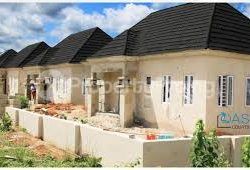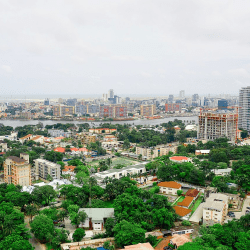The Lagos administrative division known as Epe is divided into two local government areas namely: Epe and Ibeju-Lekki with Epe serving as the divisional headquarters.
Epe lies about 89kms north-east of the City of Lagos. Urakaloye was the man reputed to be the ancestral founder of Epe, a name derived from black ants, which invaded Urakaloye’s hunting home-stead.



Hence, the town’s name, Epe, means the forest of black ants. Epe division consists of Epe, Agbowa-Ikosi, Ilara, Odo-Ayandelu, Igbodu, Ejinrin, Poka, Itoikin, Idotun, Ita-Oko, Omi, Temu Ise and Debojo. Others are Apawa, Aba-Titun, Abomite, Afere, Apakin, Abalaye Orogantigan, Kayetoro Eleko, Yegunda, Okunraya, Keta, Arapagi, Aiyeteju, Okunfolu, Osoroko, Olomowewe, Ibeju-Lekki, Akodo, Otolu, Magbon-Alade, Oriba, Iwerekin, Iberekodo, Idado, Igando-Orudu, Tiye, Awoyaya, Ite-Omi, Bogije, Siriwon, Idaso, Orimedu, Olorunkoya, Ojota, Ode-Ifa, Ofin, Igbesibi and Igbolomi, among others.

A peculiar feature of Epe is the presence of a long range of hills, which demarcates the coastal town into equal parts. However, in Ibeju-Lekki, artisanal fishing, sandy beach and coconut fringed Atlantic coastlines are distinctive characteristics of the environment, which has enormous tourism potentials.
Fishing and farming form the major occupations of the inhabitants of the Division, which also includes the Eko-Aworis.
Lagos
Lagos is the commercial capital of Nigeria and the most populated city in the country and Africa.

It was the administrative capital of Nigeria until December 1991 following the government’s decision to move the capital to Abuja in the centre of the country.

Lagos is a major African financial centre and is an economic hub.
The city has been described as the cultural, financial, and entertainment capital of Africa, and is a significant influence on commerce, entertainment, technology, education, politics, tourism, art, and fashion.
Lagos is also among the top ten of the world’s fastest-growing cities and urban areas.
The megacity has the fourth-highest GDP in Africa and houses one of the largest and busiest seaports on the continent.
The Lagos metropolitan area is a major educational and cultural centre in Sub Saharan Africa.

Lagos emerged as a home to the Awori tribe of the Yoruba of West Africa islands, which are contained in the present day Local Government Areas (LGAs) of Lagos Island, Eti-Osa, Amuwo-Odofin and Apapa.

Due to rapid urbanisation, the city expanded to the west of the lagoon to include areas in the present day Lagos Mainland, Ajeromi-Ifelodun, and Surulere.
This led to the classification of Lagos into two main areas: the Island, which was the original city of Lagos, and the Mainland, which it has since expanded into.
This city area was governed directly by the Federal Government through the Lagos City Council, until the creation of Lagos State in 1967, which led to the splitting of Lagos city into the present-day seven Local Government Areas (LGAs), and an addition of other towns (which now make up 13 LGAs) from the then Western Region to form the state.

The islands are separated by creeks, fringing the southwest mouth of Lagos Lagoon, while being protected from the Atlantic Ocean by barrier islands and long sand spits such as Bar Beach, which stretch up to 100 km east and west.

However, the state capital was later moved to Ikeja in 1976, and the federal capital moved to Abuja in 1991.

Even though Lagos is still widely referred to as a city, the present-day Lagos, also known as “Lagos Metropolitan Area” is an urban agglomeration or conurbation, consisting of 16 LGAs including Ikeja, the state capital of Lagos State.

This conurbation makes up 37% of Lagos State total land area, but houses about 85% of the state’s total population.

The business district of Lagos is home to Tinubu Square, named after the aristocratic slave trader Efunroye Tinubu. Lagos contains Murtala Muhammed International Airport, named after Nigerian president Murtala Muhammad, and is one of the busiest African airports. Lagos National Stadium has hosted various international sports events such as the 1980 African Cup of Nations.


